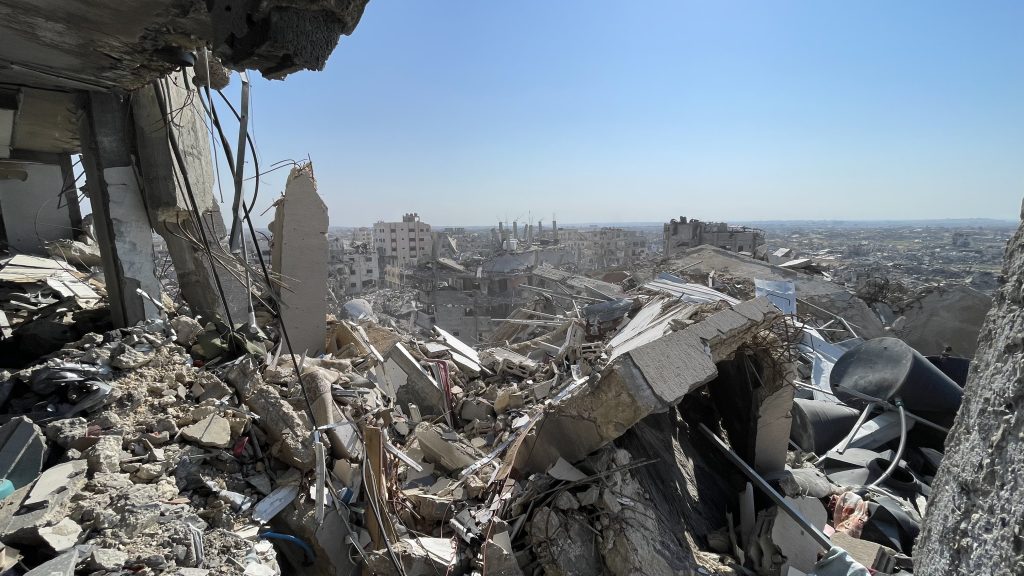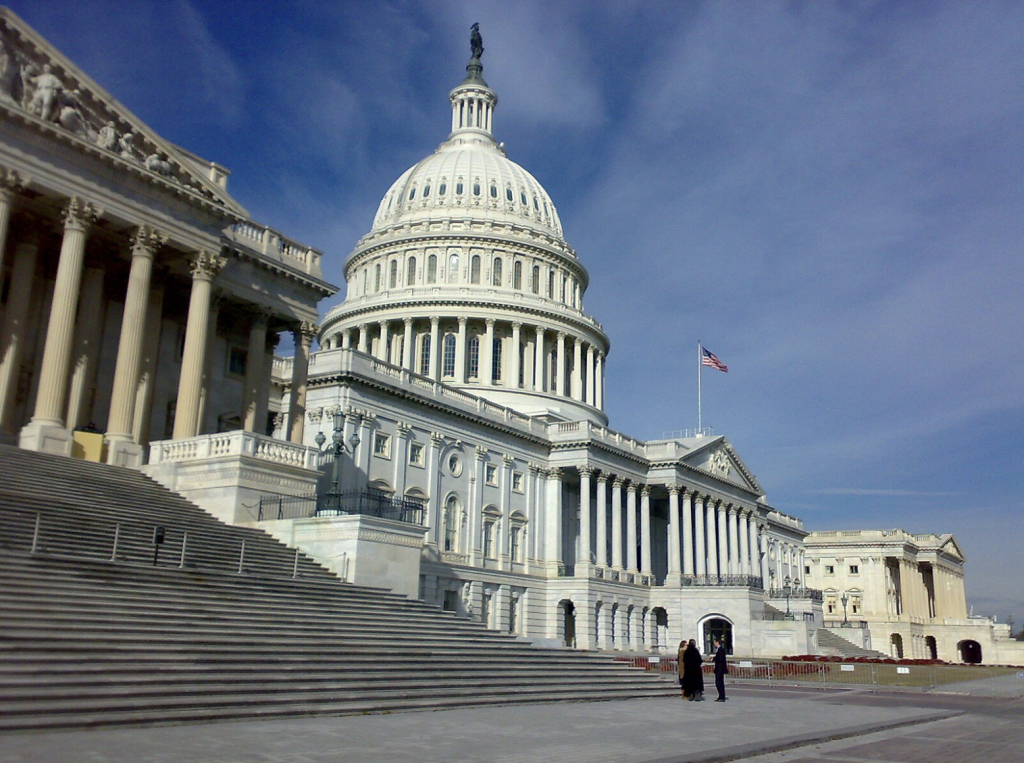Below is an open letter signed by MEDC and more than 100 other groups and sent to Congress and the incoming presidential administration regarding U.S. sanctions on the ICC:
January 6, 2025
To Members of the 119th Congress and the incoming Presidential Administration of Donald J. Trump:
The undersigned organizations write to express grave concerns and to unequivocally oppose the use of the sanctions authority of the United States to attack the International Criminal Court (ICC), an independent judicial institution dedicated to combating impunity for the gravest crimes known to humanity.
The ICC performs a vital role in international affairs by investigating the worst international crimes that shock the collective conscience of humanity and investigating those accused of committing those crimes. It does so in a manner that protects the due process rights of the accused, the sovereignty of states, including the United States, and the rights of victims. As has been widely observed, supporting the work of the Court is in the interest of the United States, and sanctioning it, conversely, undermines important US interests. The positive role of the ICC has been recognized through previous bipartisan support for investigations into war crimes allegedly perpetrated by Russian officials in the Ukraine conflict (S.Res.531 and H.Res.963), attempts to bring justice for the victims of gross human rights violations in Myanmar, and as a pathway to accountability for perpetrators of atrocities in Sudan.
Many of the undersigned spoke out when the previous Trump administration subjected two senior ICC officials to sanctions and travel restrictions. At that time, we cautioned that it was “uniquely dangerous, extreme, and unprecedented to utilize a mechanism designed to penalize criminals, their aiders, and abettors, against an independent judicial institution.” The previous sanctions against the Prosecutor and a member of her team raised serious concerns about the ICC’s ability to fulfill its mandate, including the Prosecutor’s obligation to report to the UN Security Council on the situations in Darfur and Libya, and to participate in the annual meetings of the Assembly of States Parties (ASP), the ICC’s oversight management and legislative body, where the US participates as an Observer.
In 2024, the House of Representatives passed the so-called “Illegitimate Court Counteraction Act.” Although the bill’s full scope was ambiguous, the legislative intent was to punish foreign persons who aid, materially assist, or provide financial support for efforts by the ICC to undertake certain investigations and prosecutions. The Biden administration strongly opposed the bill and the previous Senate did not vote on the legislation. As human rights, legal, and faith-based organizations, the foundations of civil society, as well as individuals who have dedicated their careers to these causes, we decry attempts to attack an independent judicial institution and urge the 119th Congress and incoming administration to reconsider this misguided position.
Asset freezes and entry restrictions are tools intended to combat individuals and entities constituting a threat to US national security, such as kleptocrats committing grand corruption, gross human rights offenders, and perpetrators of war crimes and crimes against humanity. By applying these measures to a court that 125 countries – and on two occasions, the United Nations Security Council – have entrusted with providing accountability for atrocity crimes, the United States has brought upon itself the stigma of siding with impunity over justice. In fact, Russia sanctioned some of the court’s judges last year, and the United States should not similarly adopt such vindictive tools. Such actions jeopardize the ability of desperate victims across all the court’s investigations to access justice, weaken the credibility of sanction tools in other contexts, and place the United States at odds with its closest allies.
The ICC represents and constitutes part of a global system of international justice of which the United States was a chief architect at Nuremberg and beyond. Today, the ICC, alongside other tribunals, regional mechanisms, and national courts, is carrying forward these efforts through investigations and prosecutions that could help realize justice for atrocity victims from Sudan to Myanmar to Ukraine. As a court of last resort, the ICC only can intervene when and where a State has demonstrated unwillingness or inability to hold its nationals to account for crimes within the Court’s jurisdiction. The ICC therefore provides an essential backstop for victims who have no other recourse to justice. The use of sanctions has the potential for wide-reaching impact against this institution dedicated to advancing justice for victims.
The proposed sanctions were prompted by the arrest warrants issued on November 21, 2024, for Israeli Prime Minister Benjamin Netanyahu and former Defense Minister Yoav Gallant. Practically, sanctioning the court or its officials would halt its work across all situations that are under its purview, including those critically important to the United States, such as the situation in Ukraine and in Sudan. US citizens who represent victims and survivors also could be implicated for their work to help achieve justice for perpetrators of atrocity crimes. The idea that justice can be selectively used to advance geopolitical concerns is a moral affront to all those who are in peril and an abrogation of the universality of human rights. An attack on the ICC in one situation is an attack on the rule of law itself.
At an historical moment when the global rule of law is under attack from multiple fronts, institutions like the International Criminal Court are needed more than ever to advance human rights protections and the universal goal of preventing future atrocities and advancing justice for victims. Instead, sanctions send a signal that could embolden authoritarian regimes and others with reason to fear accountability who seek to evade justice. It is essential that the United States answer any allegation of wrongdoing in a manner that does not betray the cause of global justice, abandon international cooperation, or compromise support for human dignity and rights.
It would be a terrible irony if a tool designed to penalize gross violators of human rights could instead contribute to their continued impunity. We urge other governments, Members of Congress, and advocates for victims everywhere to raise their voices to oppose attacks on the independence and autonomy of international judicial institutions like the ICC. We invite allies of justice to join us in standing against these destructive measures.
Signatory Organizations (updated January 9, 2025)
Advocacy Network for Africa (AdNA)
The Advocates for Human Rights
Al Haq
American Civil Liberties Union (ACLU)
American Friends Service Committee
American Human Rights Council
Amnesty International USA
Aotearoa Lawyers for Peace
Arizona Justice Alliance
Association for the Promotion of Sustainable Development
Association of Reintegration of Crimea
Association of World Citizens
Australian Religious Response to Climate Change
Basel Peace Office
Center for Civilians in Conflict (CIVIC)
Center for Constitutional Rights
Center for the Development of International Law
Center for the Human Rights of Children at Loyola University Chicago School of Law
Center for International Human Rights, Northwestern Pritzker School of Law
Center for International Policy Advocacy
Center for Truth and Justice
Centro de Desarrollo Étnico-CEDET
Charity and Security Network
Chicago Area Peace Action (CAPA)
Citizens for Global Solutions
Coalition for the UN We Need (C4UN)
CODEPINK
Darfur Women Action Group
DAWN
Defending Rights and Dissent
Defined Impact Group
East Timor and Indonesia Action Network (ETAN)
Ensaaf
FIDH – International Federation of Human Rights
Foreign Policy for America
Fortify Rights
Fox Valley Citizens for Peace and Justice (Illinois)
Friends Committee on National Legislation
Friends of Sabeel North America (FOSNA)
Global Centre for the Responsibility to Protect
Global Justice Center
Hawaii Peace and Justice
Historians for Peace and Democracy
The Human Rights Center, University of California Berkeley School of Law
Human Rights First
Human Rights Watch
Institute for Genocide and Mass Atrocity Prevention, Binghamton University, the State University of New York
Institute for Justice and Democracy in Haiti (IJDH)
International Alliance of Women to the UN
International Civil Society Action Network (ICAN)
International Criminal Court Alliance
International Human Rights Clinic, Boston University School of Law
J Street
The Jacob Soetendorp Institute for Human Values
Journal of Social Encounters
Laboratorio de Paz (Venezuela)
Law and Democracy Support Foundation
MADRE
Maine Coalition for Palestine
MARUF CT (Muslim Advocacy for Rights, Unity, and Fairness)
Maryknoll Office for Global Concerns
Middle East Democracy Center (MEDC)
The Minnesota Peace Project
Movimento Federalista Europeo
MPower Change Action Fund
National Forum for Human Rights (Yemen)
Nebraskans for Peace
New Jewish Narrative
New Lines Institute
No Business With Genocide
Nonviolence International (USA)
Nonviolent Peaceforce
Open Society Justice Initiative
Operation Broken Silence
Partnerships for Future Generations in Africa
Pax Christi, Greensburg, Pennsylvania
Pax Christi International
Pax Christi, New York State
Pax Christi USA
Peace Action
Peace Action Maine
Peace Action of San Mateo County
Peace, Justice, Sustainability Now!
Physicians for Human Rights
Presbyterian Church (USA), Office of Public Witness
Programa Venezolano de Educación Acción en Derechos Humanos (PROVEA)
Progressive Democrats of America – Central New Mexico (PDA-CNM)
Project Expedite Justice
Redress
Religions for Peace Canada
Robert F. Kennedy Human Rights
The Sentry
Southern Anti-Racism Network (SARN)
StoptheDrugWar.org
Stop Genocide Now
Tahrir Institute for Middle East Policy (TIMEP)
Ukrainian Legal Advisory Group (ULAG)
UN Association of Greater Philadelphia
Unitarian Universalists for Justice in the Middle East
Unitarian Universalist Service Committee (UUSC)
United Church of Christ
United Church of Sante Fe
United Nations Association of Sweden
University Network for Human Rights
US Boats to Gaza
US Campaign for Burma
Veterans for Peace
Women for Weapons Trade Transparency
Women’s Initiatives for Gender Justice
Women’s International League for Peace and Freedom, US
World Beyond War
World Court of Human Rights Coalition
World Federalist Movement – Canada
World Federalist Movement-Institute for Global Policy
World Without Genocide at Mitchell Hamline School of Law
Youth and Women for Change in Eswatini
Zarga Organisation for Rural Development (Sudan)


